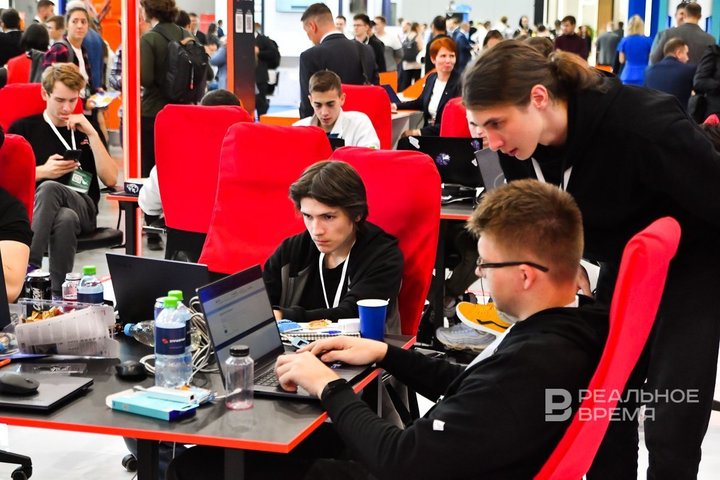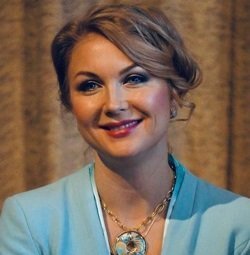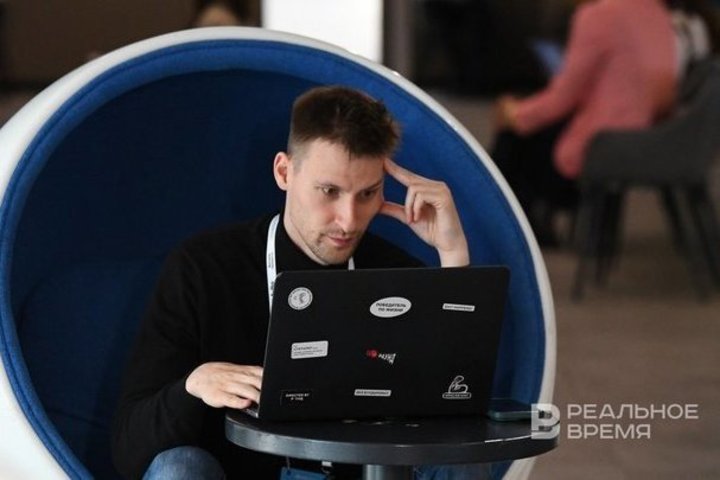Irina Volynets: ‘The only difficulty is the question of whether the state has the necessary resources’
The Children's Ombudsman of Tatarstan and popular bloggers — on the introduction of a license for the sale of courses and trainings

Bloggers in Russia may be required to obtain licenses to sell courses and trainings. The deputies of the State Duma have prepared an appropriate package of bills with amendments to the law “On Education”. In a conversation with a correspondent of Realnoe Vremya, Tatarstan Children's Ombudsman Irina Volynets expressed the opinion that the introduction of mandatory licensing for the sale of online courses would increase consumer confidence that the product would at least not cause harm. Meanwhile, the bloggers interviewed by the publication disagreed about the initiative — according to them, it is possible to repackage courses for “consulting services”, and the responsibility primarily lies with the people who buy such products. Read the details in the material of Realnoe Vremya.
Licenses for the sale of courses and trainings
Bloggers in Russia may be required to obtain licenses to sell courses and trainings. The deputies of the State Duma have prepared an appropriate package of bills with amendments to the law “On Education”.
“The main problem of regulating information, consulting and educational services is that they are in a single legal and commercial field, which creates a number of serious problems. There is a situation of providing low-quality educational services, which can harm consumers," the explanatory note says.

One of the co-authors of the project, Yana Lantratova, stressed that individual entrepreneurs are not obliged to obtain licenses for educational activities. In her opinion, because of this, bloggers evade taxes through the business fragmentation system.
It is also noted in the project materials that in 2022 the total income of online schools amounted to 95 billion rubles. In 2023, this value increased by another 30%, reaching 123 billion rubles.
It is also proposed to ban medical blogs without specialised education.
“Legislative decisions are needed — clear and fair... Medical blogs should be run by doctors," RIA Novosti quotes the head of the Duma Committee on Health Protection, Badma Bashankayeva.
The day before, the State Duma also determined the composition of a working group that will improve legislation in the field of information business and the blogosphere. It included deputies Peter Tolstoy and Alexander Khinstein, the co-founder of the self-regulatory organisation Association of Bloggers and Agencies and CEO of the creative agency Blacklight Maxim Perlin, as well as blogger and entrepreneur Alexander Belanov (Sasha Weiss).
Proceedings with bloggers
The proposal to license bloggers has not become groundless. In 2023, scandals broke out immediately around two well-known bloggers: Elena Blinovskaya and Ayaz Shabutdinov.
Blinovskaya was detained on April 27, 2023, while trying to leave the country. According to investigators, she used a business fragmentation scheme, understated her income and did not pay taxes totalling over 918 million rubles for 2019-2021. The court sent her to a pre-trial detention centre, after which they sent her under house arrest, and later lifted the arrest from the apartment in favour of paying off the debts. In total, 21 real estate objects, all the blogger's accounts and four luxury cars were arrested under her case, and in June of this year she filed for bankruptcy.
As for Shabutdinov, he is accused of fraud on a particularly large scale in 50 episodes. In June, the Tagansky court in Moscow extended the preventive measure for Ayaz Shabutdinov until July 16. The investigator stated that five more criminal cases had been opened against him on charges of especially large-scale fraud.
A criminal case on fraud was opened on October 16, 2023. Ayaz Shabutdinov is accused of eight episodes of fraud. The investigative committee believes that the business coach, using aggressive marketing, offered to purchase courses, trainings and webinars, guaranteeing extra income after passing them. Eight citizens signed contracts for the provision of paid services in the amount of 100 thousand to 1.9 million rubles. Ayaz Shabutdinov himself does not admit guilt.
The Russian Interior Ministry reported on his detention on November 3 of the same year.The agency received information about several episodes of crime committed by employees of one of the commercial organisations through which the blogger sold his courses.
Natalia Kalistratova, who wrote a statement to law enforcement agencies against blogger Ayaz Shabutdinov, said that after participating in “business trainings” many people were left with loans and without money. She explained that because of the blogger, she had to take out a bank loan, which she had already paid off.
“Courses can be dangerous”
It can be extremely difficult or even impossible for a consumer to figure out the quality of a service on their own, says Irina Volynets, Commissioner for Children's Rights in Tatarstan. In the conversation with the correspondent of Realnoe Vremya, Tatarstan Children's Ombudsman Irina Volynets expressed the opinion that the introduction of mandatory licensing for the sale of online courses would increase consumer confidence that the product would at least not cause harm.

According to the speaker, when licensing bloggers selling courses, first of all it is necessary to check their competence in the field in which they teach, since there are now a large number of information gypsies on the market.
“The only difficulty I see is the question of the availability of the necessary resources from the state. The online market today amounts to hundreds of millions and even billions of rubles," the expert stressed. “Therefore, of course, I would like those experts who will evaluate the participants of the information market to be as objective and competent as possible. It is also necessary that the procedure for obtaining this license be transparent, this is also very important.

Volynets also mentioned another advantage of licensing bloggers: the ability to refund money to the consumer in case of poor-quality provision of services. In her opinion, at the moment, “coaches” do not risk anything in case of unfair performance of their services.
“Today there is a legitimate opportunity to earn good money even on a low-quality product. <...> For low-quality products, we have a law on consumer protection, but since most representatives of the information business in the field of education work without licenses, therefore, they have nothing to risk. That is, without this, he can simply open a new sole proprietor and start selling the same thing again. With a license, it will be more difficult, say, to start from scratch," the speaker said.
Speaking about the initiative from the point of view of bloggers, the ombudsman noted that the larger and more far-sighted a player in the market, the more interested he is in obtaining a license. In her opinion, “those who initially know that they are selling air will resist new introduction”.
One can repackage the courses, stop calling them “courses”, and call them “consulting services”
Well-known bloggers also commented on the initiative to introduce licensing in a conversation with Realnoe Vremya. Their opinions on this matter differed.
“On the one hand, it's cool, because now so many things are being sold and often designed to just make big bucks," says Regina Rokityanskaya, who teaches secular meditation. “And many people take advantage of the human desire to buy a magic pill. On the other hand, as a person who worked in education and left because of bureaucracy, I can say from my experience that, most likely, everything will come down — more or less — to the same thing. It is like getting a certificate to a swimming pool: you get it and go swimming for six months, and it doesn't matter if you're sick or not. The main thing is that there is a certificate. Or maybe you actually made it through friends and didn't undergo tests.
“To be honest, I agree and I don't," says Gulnaz Yusupova, who is engaged in courses on speech, voice and confidence. “Now there are many courses on “esotericism”. Or courses on marketplaces. In these courses, no one explains about investments, competition and disadvantages. Many pass them and begin to look at other courses with doubt. I've met a lot of such clients myself. They want to go to courses, but after not the best, productive previous ones, they are afraid. On the other hand, I disagree. It's like putting an innocent man in prison. There are serious people among the sellers of the courses, who really give high-quality knowledge. For example, I never do mass launches. I don't want to turn my work into a conveyor belt, for me my students are a piece of goods (my acting teacher said so, now I understand him). It is very important for me to solve their real problems, if I cannot do this, I will not take this person on courses.
“In general, it will be difficult to track it in any case," says English teacher Endje Gizzatova. “One can repackage the courses, stop calling them “courses”, and call them “consulting services” and so on. It seems to me that in this situation, the responsibility lies primarily with the people who buy these courses. Let's say that many universities obviously have licenses, but whether they guarantee a really high level of education is questionable. And it all comes down to how seriously you take your choice.